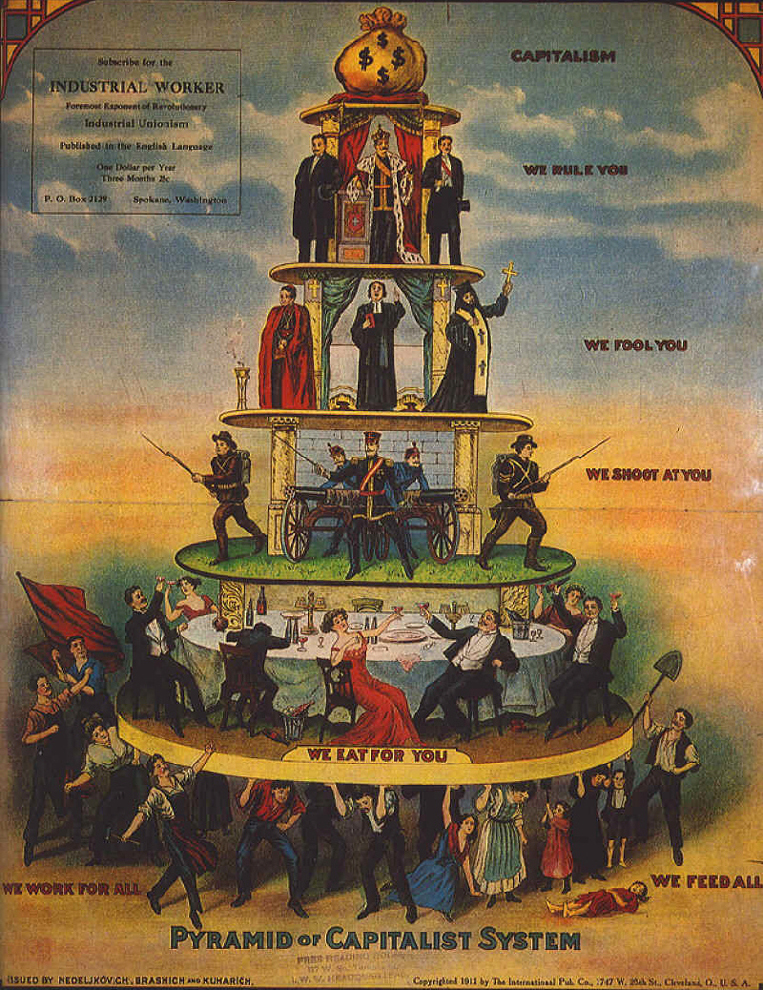Sun
12
Jan
2014
A Brief History of Anarchism

A Brief History of Anarchism
The struggle for the common good has a long past.
Tue
23
Apr
2013
Noam Chomsky: How Close the World Is to Nuclear War
 Author, historian and political commentator Noam Chomsky. (photo: Ben
Rusk/flickr)
Author, historian and political commentator Noam Chomsky. (photo: Ben
Rusk/flickr)
From Reader Supported News (RSN)
19 April 13
A powerful excerpt from the new book, "Nuclear War and Environmental Catastrophe."
 aray Polk: What immediate tensions do you perceive that could lead to nuclear
war? How close are we?
aray Polk: What immediate tensions do you perceive that could lead to nuclear
war? How close are we?
Noam Chomsky: Actually, nuclear war has come unpleasantly close many times since 1945. There are literally dozens of occasions in which there was a significant threat of nuclear war. There was one time in 1962 when it was very close, and furthermore, it's not just the United States. India and Pakistan have come close to nuclear war several times, and the issues remain. Both India and Pakistan are expanding their nuclear arsenals with US support. There are serious possibilities involved with Iran - not Iranian nuclear weapons, but just attacking Iran - and other things can just go wrong. It's a very tense system, always has been. There are plenty of times when automated systems in the United States - and in Russia,it's probably worse - have warned of a nuclear attack which would set off an automatic response except that human intervention happened to take place in time, and sometimes in a matter of minutes. That's playing with fire. That's a low-probability event, but with low-probability events over a long period, the probability is not low.
Sun
10
Jun
2012
Noam Chomsky | The US War on Latin America
From Reader Supported News
The US War on Latin America
By Noam Chomsky, Nation of Change 12 May 12
Though sidelined by the Secret Service scandal, last month’s Summit of the Americas in Cartagena, Colombia, was an event of considerable significance. There are three major reasons: Cuba, the drug war, and the isolation of the United States.
A headline in the Jamaica Observer read, "Summit shows how much Yanqui influence had waned." The story reports that "the big items on the agenda were the lucrative and destructive drug trade and how the countries of the entire region could meet while excluding one country – Cuba."
Tue
05
Jun
2012
America's Rank Hypocrisy
05 June 12
In his penetrating study "Ideal Illusions: How the U.S. Government Co-Opted Human Rights," international affairs scholar James Peck observes, "In the history of human rights, the worst atrocities are always committed by somebody else, never us" - whoever "us" is.
Almost any moment in history yields innumerable illustrations. Let's keep to the past few weeks.
Thu
17
May
2012
Noam Chomsky: Occupy Has Created Solidarity in the US

Noam Chomsky: Occupy Has Created Solidarity in the US
15 May 12
Quoted from Reader Supported News
Noam Chomsky says the Occupy movement has helped rebuild class solidarity and communities of mutual support on a level unseen since the time of the Great Depression. "The Occupy movement spontaneously created something that doesn't really exist in the country: communities of mutual support, cooperation, open spaces for discussion ... just people doing things and helping each other," Chomsky says. "That's very much missing. There is a massive propaganda - it's been going on for a century, but picking up enormously - that you really shouldn't care about anyone else, you should just care about yourself. ... To rebuild [class solidarity], even if it's in small pieces of the society, can become very important, can change the conception of how a society ought to function." Chomsky also gives his assessment of President Obama, whom he says has attacked civil liberties in a way that has "gone beyond [George W.] Bush."
 DISCUSSION
GROUP
DISCUSSION
GROUP



